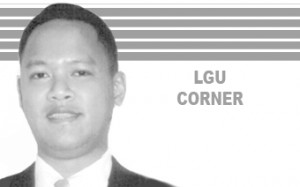 Earlier this week, one of the country’s top businessmen Manny Pangilinan, appeared to be warning the incoming Duterte administration to “leave business alone.â€
Earlier this week, one of the country’s top businessmen Manny Pangilinan, appeared to be warning the incoming Duterte administration to “leave business alone.â€
He seemed to set the tone, and appeared to be lecturing government on what it should and should not do with Philippine business.
The Philippine Daily Inquirer acted as Pangilinan’s mouthpiece by carrying Pangilinan’s statement on its headline.
A Pangilinan-led company holds shares of the Inquirer’s corporate vehicle so that explains the journalistic posturing.
Pangilinan was quoted as saying: “Whose money is being spent? It’s the private sector’s. There is no guarantee from the government, no government fund is involved, so get out of the way, period.â€
It may be true that no government money has been infused in the telecoms industry. (Perhaps it comes from Indonesian “crony†money?)
It doesn’t mean though, that government cannot intervene.
On the contrary, the Constitution actually demands government intervention specially in vital industries such as telecommunications.
With more reason should government intervene because of the terrible service that Smart and its rivals have been consistently providing the Filipinos for many years.
Drop calls. Intermittent signals. Very poor internet service. Scandalously calibrated internet speed.
It’s a total rip-off.
Filipino consumers just know this very well.
And since many of them travel around the region and elsewhere, Filipinos can compare the kind of service these local telecom companies are providing, against their counterparts in Singapore, Hongkong, Japan, South Korea, just to mention a few.
That is why with more reason should government intervene.
There is something terribly wrong in making government intervention dependent on whether public money has been infused or not.
There is such a concept called police power, an inherent power of the state to intrude/intervene into private affairs for the general welfare.
I haven’t heard this concept called “police power†now requires infusion of public money.
Besides, it is wrong to characterize the telecoms industry as a simple business concern.
In law, it is not just a business but a business that is “imbued with public interest.â€
Thus with more reason should it be under state regulation.
The State would shirk in its duty, if it takes a hands-off policy over telecommunications companies milking the poor Filipino while delivering horrible service.
When the incoming President warned the telecoms industry players to shape up, he was merely echoing the command of the Constitution.
Lest we forget, the mandate of the Constitution is very specific.
The State may, in the interest of national welfare, and establish, operate vital industries like the communications industry.
The State shall regulate or prohibit monopolies (like what is happening now in our telecoms industry) Â when the public interest so requires.
No combinations in restraint of trade or unfair competition shall be allowed.
Indeed, these provisions come alive in the wake of a cartelized telecoms business.
Opening the industry to other players, in the wake of miserable services, is in pursuit of the constitutional command.
“Leave business alone�
What’re you talking about? (By Atty. Jay I. Dejaresco)
